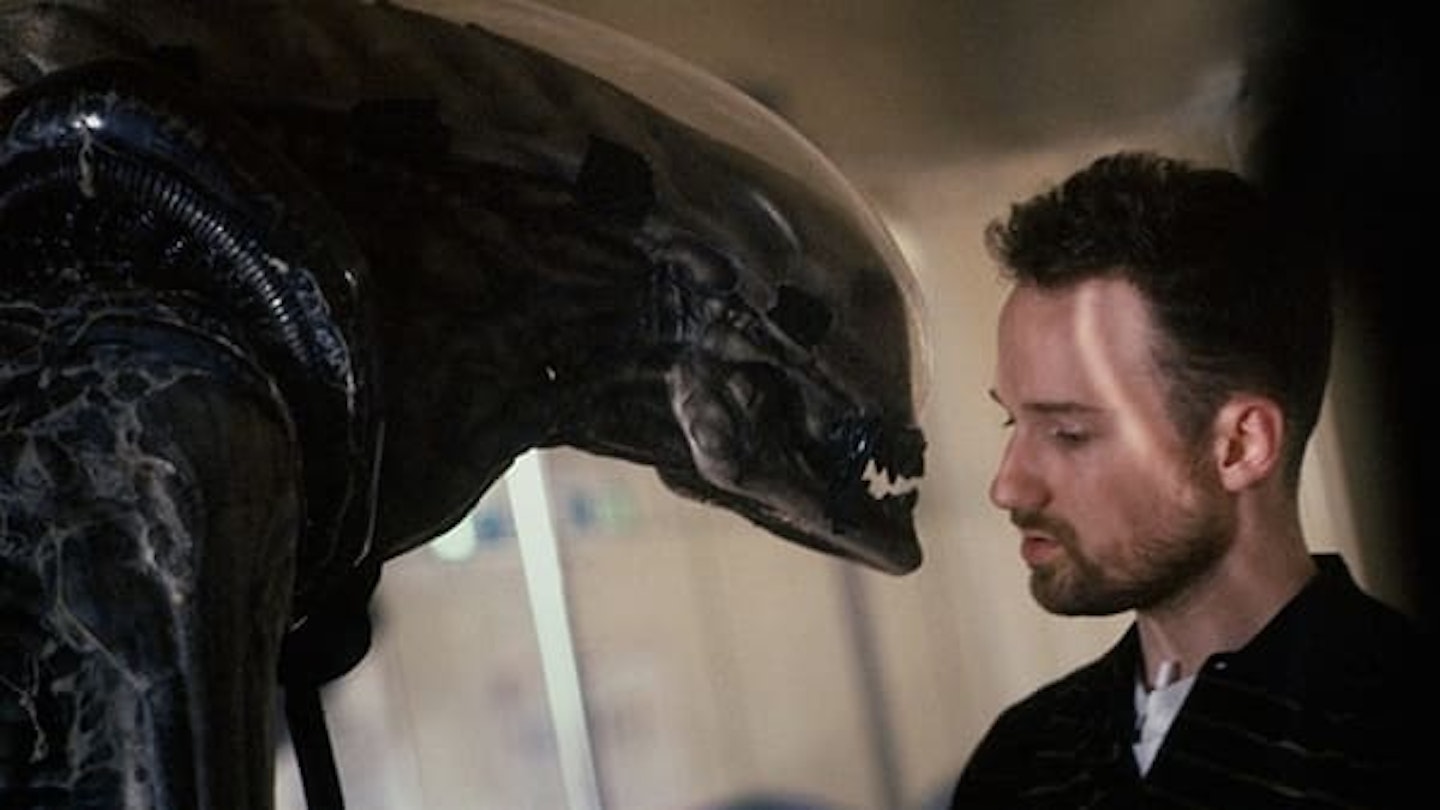25 years since its release, Alien³ has gained quite the cult following. But, as is well-documented, David Fincher's time on set was far from peachy, with actors, crew and director overstretched and overtired. Producers were also lurking around every corner, outnumbering the actors (or so it felt) to make sure things stayed on track... Back in 2009, Empire celebrated 30 years of the Alien franchise, the below on set interviews included.
This feature originally ran in the November 2009 issue of Empire Magazine.
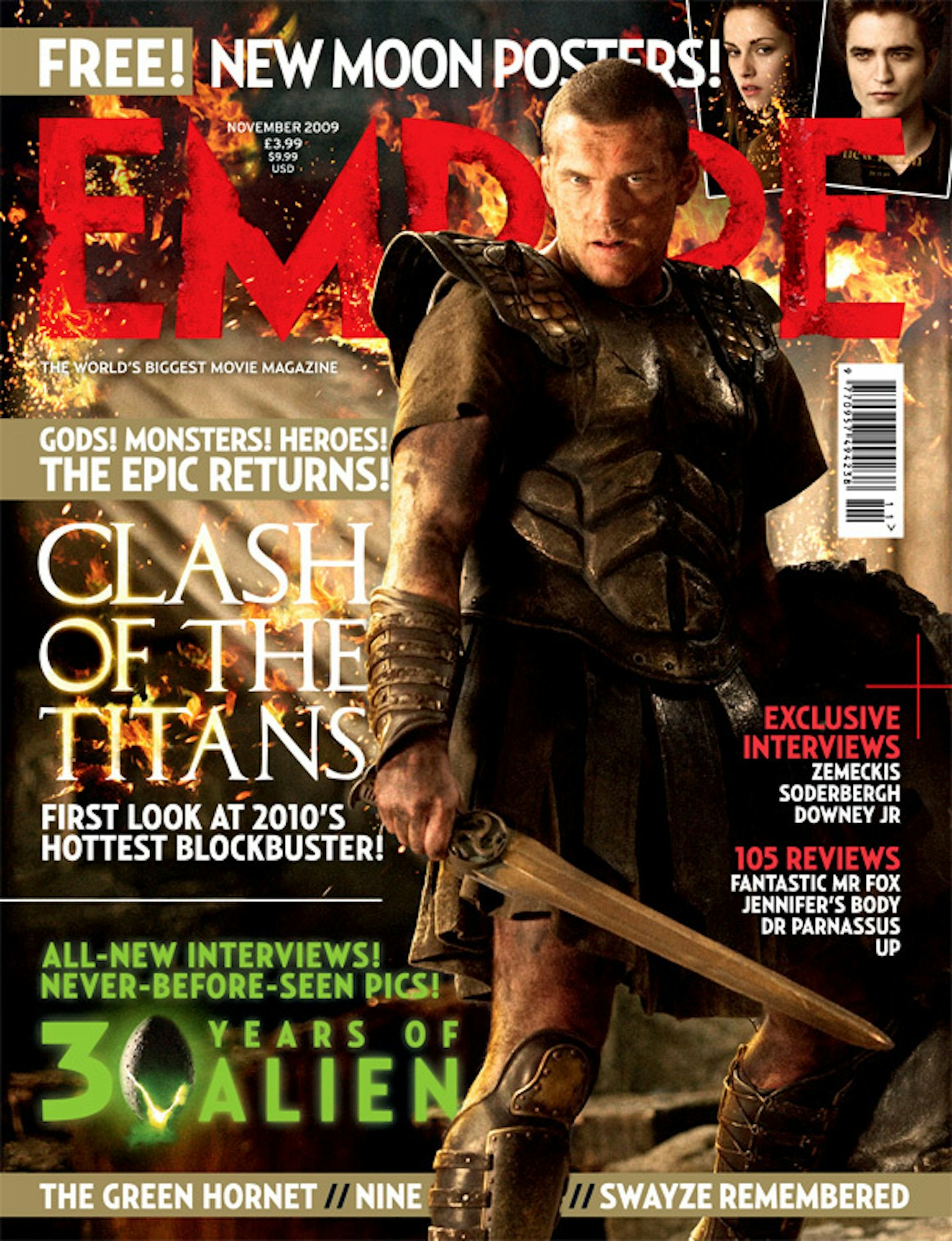
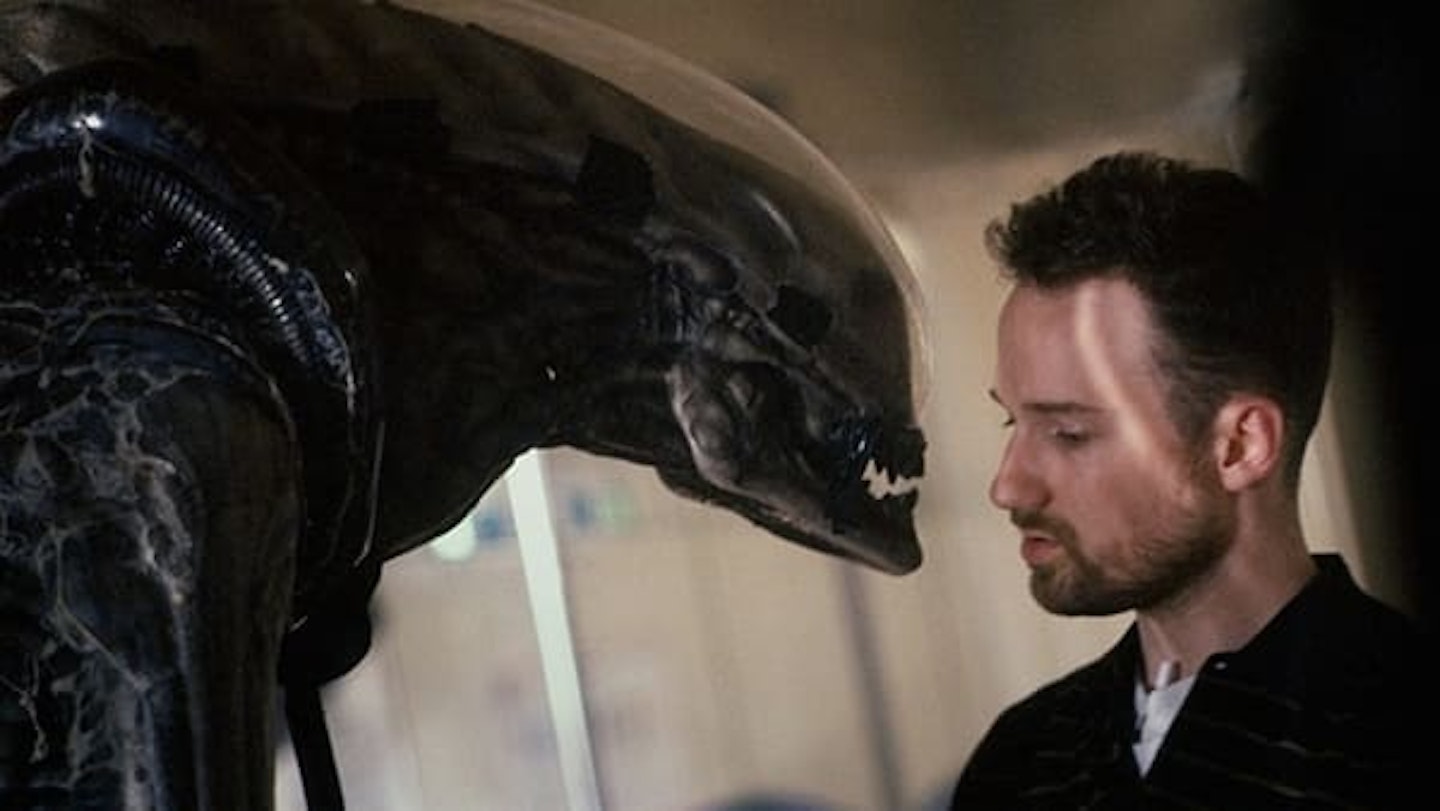
I had been warned in advance to expect the unexpected on the film set of Alien³. It began on arrival at Pinewood Studios, peering through a foggy dawn at a chauffeur being led to the exit by two security men.
"That's one of the actor's drivers," unit publicist Geoff Freeman pointed out "He's been caught nicking photographs from my drawer."
The mystery of the source of pictures, regularly appearing in the tabloids of a bald Sigourney Weaver surrounded by the paraphernalia of space, had been solved.
"This film," said Geoff, "has been a nightmare." Since he could count one of the all-time movie disasters, Cleopatra, among his early films, and never said a bad word about anyone or anything, this was really saying something.
I was the first British journalist to finally be invited on set, after 16 weeks of requests. The eventual acceptance call had come shortly before midnight.
"Get over before they change their minds," said Geoff. "But be prepared to hang around – and don't be surprised by anything you see or hear."
The third movie in the Alien series was a hot ticket at the time. The Bond films were halted and locked in a bitter legal battle that eventually took six years to resolve. So Alien had suddenly become one of the world's biggest franchises and was camped, almost insultingly to the impotent, sleeping Bond, on Pinewood's giant 007 Stage.
"I have been through a tunnel of blood on this one" – Sigourney Weaver.
There had been much gossip about what was going on – or, rather, what wasn't going on. The endless takes, a cast mystified by a script that was being written as they filmed, and a crew forced to work late, night after night. Yet it had already taken two years to get to this point, from the days when Renny Harlin announced he would like to follow in the footsteps of Ridley Scott and James Cameron, and make an Alien movie.
Director Vincent Ward, a New Zealander, was eventually hired by 20th Century Fox. This was at an impasse when Sigourney Weaver, playing hard to get, had declared she was definitely not going to star again as Ripley. So Ward started prepping the film on a script which had no heroine. When Weaver suddenly saw the light – or more like the glint of gold from a $4 million offer and the chance to become a co-producer – there had been a sudden shift in gear. Ward, then 35, wanted Ripley to land on a wooden spaceship inhabited only by monks (see Empire issue 234). They would view her appearance as a test by their god. The sudden arrival of the Alien would be the equivalent of their devil.
But there was another devil at work – a shortage of cash. This was the spring of 1991, the year of the last great recession. Not that you'd know it – more than $7 million was spent on the "development" of a $35 million film. Ward, however, was thinking bigger, which met with a cold response from studio heads who told him to cut back on his grand plans, particularly the construction of a wooden cathedral for the monks. Exit Ward, leaving producers Walter Hill and David Giler to mastermind a new script. Enter director David Fincher with their rewritten screenplay, set in a space prison with all inmates having discovered religion, still incomplete. Fincher had just celebrated his 28th birthday. The only entries of note on his CV had been a couple of Madonna videos a few years before. Hopes were not high, and the budget was already drifting up to $50 million. "He likes to make sure he's got things right, which is why he prefers about 20 takes for every scene instead of six or seven," warned Geoff Freeman. "It might get a bit repetitive."
"I'm reminded how big this movie is on a daily basis" – David Fincher.
I was led up the unspectacular entrance to the one-time 007 Stage, a series of uneven steps of cracked concrete which would have probably been condemned at any warehouse.
The sprawling film set, supposedly a "bleak wasteland" of planet Fiorina 'Fury' 161, looked like a massive rubbish tip that had been sprayed a mix of black, grey and brown. Considering the vast amphitheatre, only a comparatively small section was lit and ready for filming.
Sigourney Weaver could be seen, in a pool of white light, rehearsing a straightforward scene. She crawled through a pipe, with a wind machine blowing in her face.
After a couple of rehearsals, she came over to me, hand extended. She was covered in cuts and bruises courtesy of make-up, but was crisply pleasant in conversation and manner. "After this, there is a long set-up giving us plenty of chance to talk," she said confidently. "I should be ready in a few minutes."
Several of the film crew overheard this conversation. At least a couple of them glanced at each other and shook their heads. I knew one of the stunt guys from a book I did on Robin Hood: Prince Of Thieves. "She's gotta be joking," he observed, behind a hand. "See if you can find a chair to sit on. Or a bed."
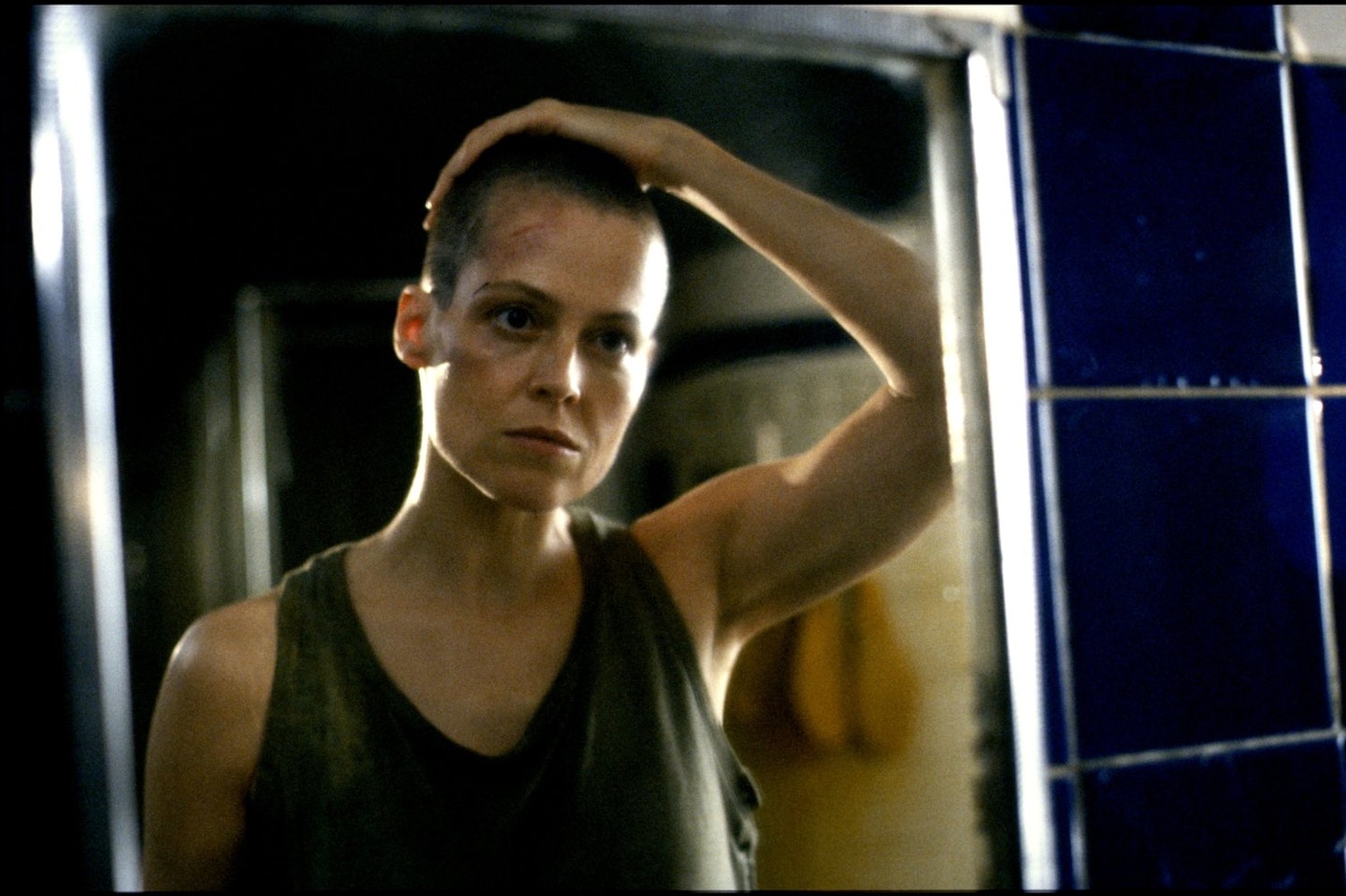
I wait and I watch. The wind machine whirrs, Weaver crawls and scrambles. Looking desperate and terrified under the battery of lights. It is the scene in the lead works, where the Alien is trapped. Steam, and what sounds like a blast furnace, is let loose as Ripley's eyes widen and...
"Cut."
A voice from the dark: director David Fincher.
Weaver goes back to her mark and Fincher emerges. He's slight, with a neat, brown beard framing his face, and seems intensely serious under a black baseball cap. He says something
virtually in her ear and disappears again behind a monitor.
"Take two."
It all kicks off once more. The sound and the lights and the scrambling...
"Cut," comes the voice. "We're going again."
After 12 takes, I see Brian Glover, forever remembered as the school teacher in the 1970 film, Kes. "Alright, lad?" he says, cheerily. "We're having a grand old time on this one. I haven't got a bloody clue what's happening."
"The director keeps changing the bloody script after I've learned the lines" – Brian Glover.
The bald former professional wrestler from Barnsley is playing prison governor Andrews. He's the only actor who didn't have to get shaved for the movie. "I've done about 50 films and TV dramas and they're paying me more on this than the rest put together," he says. "Good job they have, too, 'cause I don't think it will ever be finished."
So what's your take on the film, Brian? "Sigourney's a down-to-earth woman," he says, ignoring the turn of phrase. "But the director keeps on changing the bloody script after I've learned the lines!"
He likes Fincher, though. "He's a nice bloke doing his best," he says. "It's not been easy for him and he's just had a hell of a time on this one."
In what way?
Glover shakes his broad, bald head in silence and presses a finger to his lips, monk-like. I presume he'd been cast when Vincent Ward was still in charge.
It's left to Paul McGann, playing Golic, to spell things out in a way that only McGann can. I've met him a few times by this point, going back to the 1986 production of The Monocled Mutineer, a two-part TV series on First World War deserter Percy Toplis. He's established himself, at 31, as one of our biggest stars, with Withnail And I and a sharp TV series called Dealers. He's a Scouse jack-the-lad who calls a spade a shovel – particularly when it's used for shovelling manure.
"There are more producers around here than actors," he tells me. "I wondered who the hell they were at first. It's like having an extra fucking audience for every scene. You can't get a clear picture of who wants what, it gets changed as we go along. I don't know what they're doing here. Rewriting some of the script? Getting in the way? Fuck knows. But movies are in a mess. I am in the only fucking film which is shooting in England. The situation is getting dire with this recession going on. We're going to be down to one cameraman and one sound crew in this country if we aren't careful."
He is mighty miffed, because there has been some recent personal criticism about the sort of roles he's chosen, post-Withnail. "I do not do a crap movie, knowing it is going to be crap," he says. "I work with people and if the people are good, then fine. I thought this would be fantastic. It is fantastic – a fantastic eye-opener to how Hollywood movies operate."
"There are more producers around here than actors. I wondered who the hell they were at first" – Paul McGann.
I drift back to the small corner of the 007 Stage where Weaver is still going through her paces. The bigger beasts among the film's co-stars, Charles Dance (surgeon Clemens) and Charles Dutton (Dillon), prefer, I am told, not to add their own thoughts on the film.
We are now on take 20, the morning has all but disappeared, and Weaver genuinely looks wrecked. No make-up required this time. I honestly can't tell the difference between take 24, the one that's accepted with a bark of, "Check the gate", and all the others I've witnessed. It looks the same as the first.
But Weaver's mood has shifted somewhat, as she practically staggers over towards me. "Okay, so just give me a little time and we will have a late lunch together," she promises. She is breathing deeply, her eyes are bloodshot and she appears to be absolutely shattered.
After a full hour recovery, we are eating a cheese salad in one of Pinewood’s large dressing rooms. A StairMaster stands in the corner. “Melanie Griffith left it for me here,” she says. “I need the stamina it gives me. I have to be as ready to go for it (filming) at ten in the evening as I am at eight in the morning.”
Weaver, 41 at the time, does not even attempt to cover up the production problems. They said, with Alien, you can’t hear a scream in outer space. But you certainly can on the ground in deepest Buckinghamshire.
“We have had to make a lot of changes in the script as we’ve gone along,” she says. "We were building the sets before we had a script and having to cast it quickly, because of time concerns." That was not the way that Fincher wanted to do his first film.
“It has made us go over budget and over schedule. There has been a lack of preparation. My original thought was that I would not do it. I felt it was too much of a gamble. And I have thought as this film has gone on, ‘Maybe I was right.’ I have been through a tunnel of blood on this one.”
"The crew has not enjoyed being there at ten o'clock at night. But, you know, neither have I. But that's just the way it is" – Sigourney Weaver.
What were her feelings towards the first-time director? Well, I was a bit apprehensive about having a guy who directed Madonna videos direct this movie,” she says. “So I asked him, at one of our production meetings at 20th Century Fox, in Los Angeles: ‘How do you see the character of Ripley?’ He said, ‘I see her bald…’ I immediately liked the idea. I guess I was relieved that he had any image of her at all. That told me more about how he saw this film that anything else. He saw Ripley as very vulnerable – her against everything and everyone. And I liked that. All I said was, ‘Well, if I shave my head, then my price goes up.’ Everyone laughed nervously. I didn’t get another dime!”
She insists that she and Fincher have had “a lot of laughs” on the film and he has a very dry sense of humour. When I ask if she can remember the last time he made her laugh, Weaver purses her lips and doesn’t reply. Perhaps, post-morning, she has just clean forgotten?
She says, “Other people working on this film have said, ‘Oh, it’s so hard. It is so tense and it is so this and so that.’ The crew has not enjoyed being there at ten o’clock at night. But, you know, neither have I. But that’s just the way it is.”
And how about the future? Of that she has no doubt. “This is the last one for me,” she says. “I have never been more sure about anything. If there’s another Alien, then they will have to do it without Ripley.”
When I return to the set, David Fincher is organising the next scene. He looks edgy and says he hasn’t really got time to talk. We stand near his monitor. “It’s quite an experience,” he says evenly.
So what about the reports of lateness on the film set and scenes dragging on and on? I’ve just witnessed one of them, after all. “It’s not just that,” he says. “After every day’s filming, there are questions to be answered from LA. I get a report after they have seen the dailies from the previous night’s filming. It is a matter of keeping the show on the road, however many issues I have to deal with.”
It’s perhaps not quite the time or the place to pose the question about whether the debut director is in way over his head. But I don’t have to. “I am not allowed to forget that this is a very big opportunity for me,” he says, with a thin smile that shows the dry humour to which Weaver referred. “In fact, I am reminded of how big it is on a daily basis.”
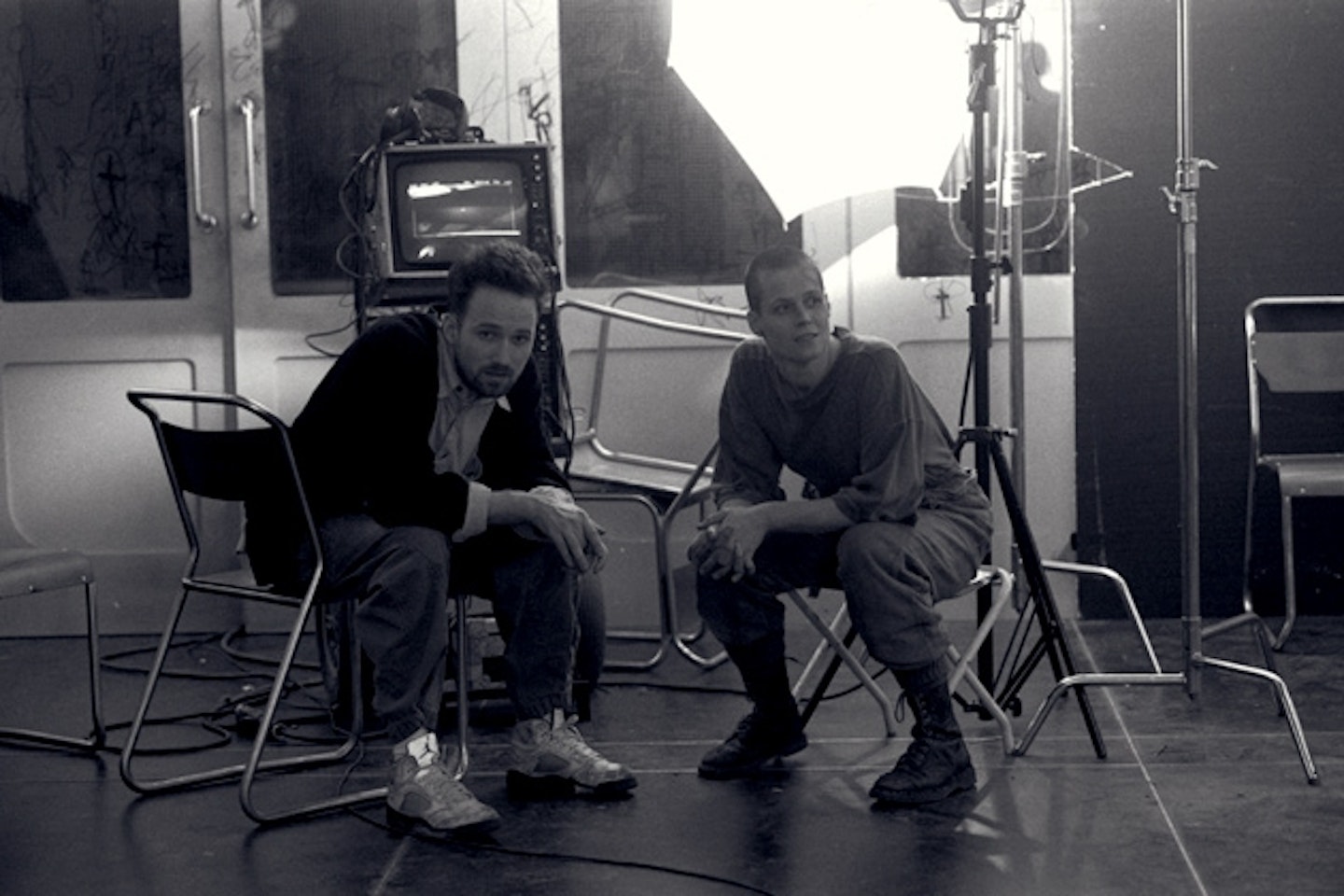
I think Fincher was trying to tell me something. Perhaps I was too thick, or even take-weary after just one day, to pick up on it. So although I'd now like to report that he launched an Alien-like attack on producers Hill and Giler, who later virtually abandoned him to take responsibility for the fIlm on his own, it just did not happen.
He kept quiet about the constant re-writing, too. Hill and Giler, who called him a "shoe salesman" in reference to the ad he made for Nike, needed help. A credit on the script went to Larry Ferguson and character writing to Dan O'Bannon and Ronald Shusett. Even Vincent Ward's name popped up – perhaps based on the prisoners being religious and the film's vaguely medieval music. It must have been like dealing with a committee.
"I said, 'If I shave my head my price goes up.' I didn't get a dime" – Sigourney Weaver.
But Fincher was all nudge-nudge, wink-wink about the deep-seated problems, even though we were a week away from Jon Landau, Executive Vice-President at 20th Century Fox,
closing the production after 93 days. He ordered Fincher to head back to LA, first to cut the film, then worry about reshoots.
David Fincher returned to making music videos for Michael Jackson, Aerosmith and Sting for the next few years, as if in recovery from his Hollywood experience. He was not handed another major movie until Seven in 1995.
My day ended, as it had started, with the late, great Geoff Freeman, then the most chipper, optimistic unit publicist in the business, seeing me out of a darkened Pinewood.
"Despite everything you've seen," he said with a wide grin, "it's going to be brilliant."
